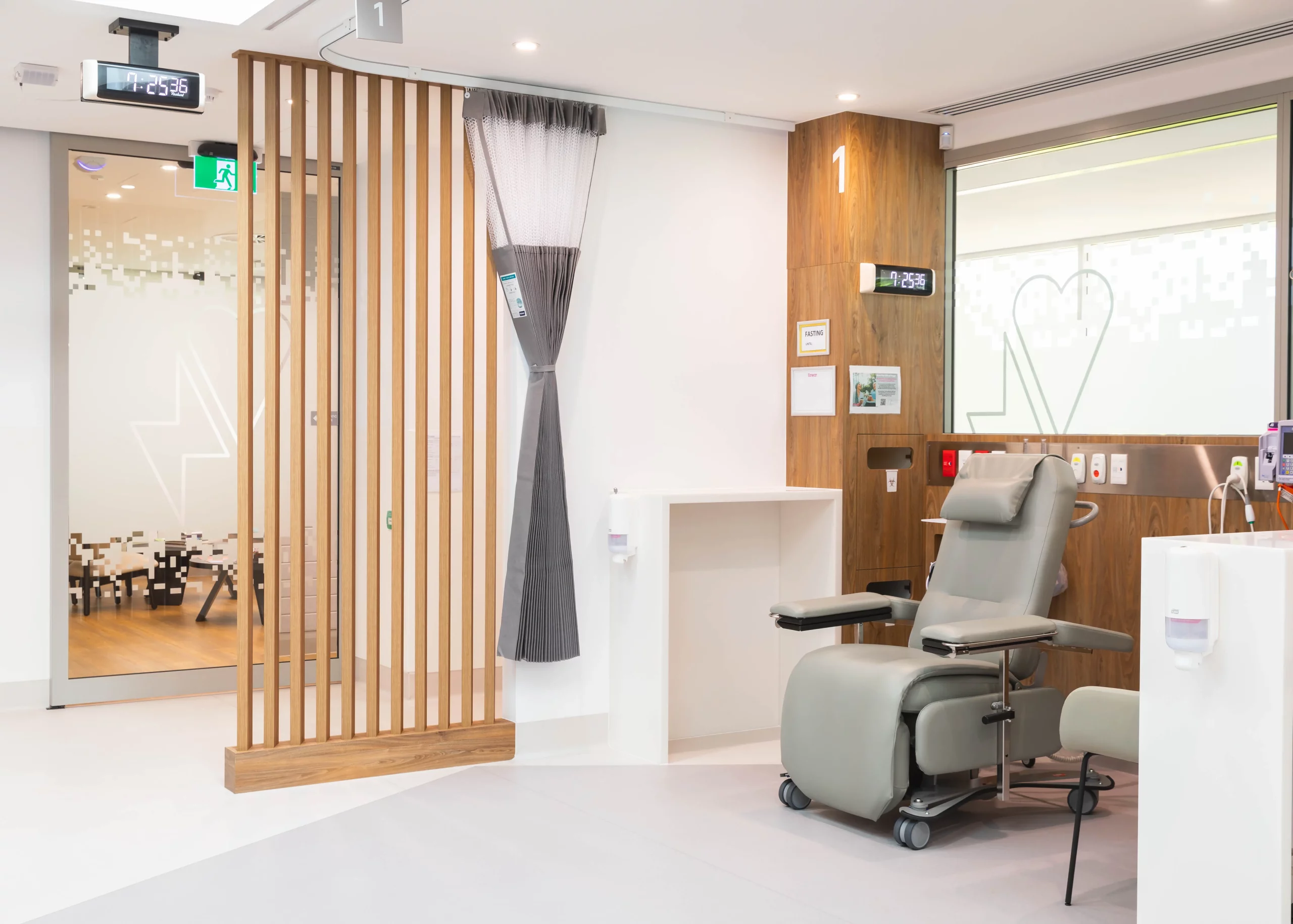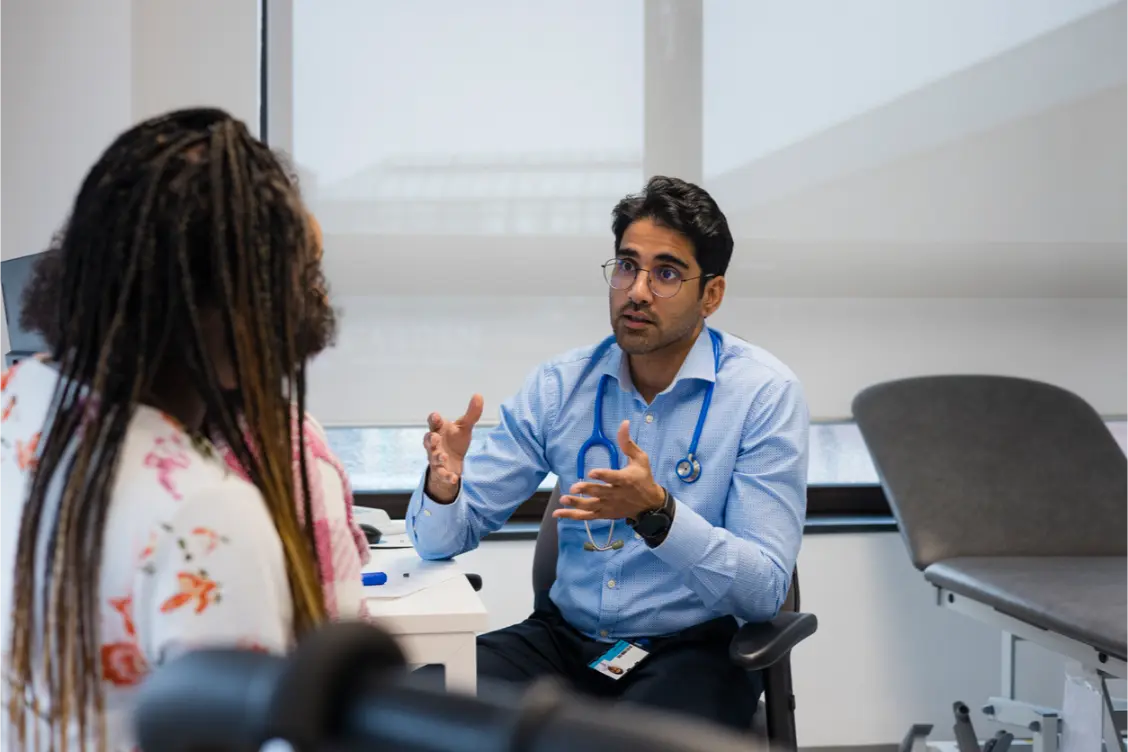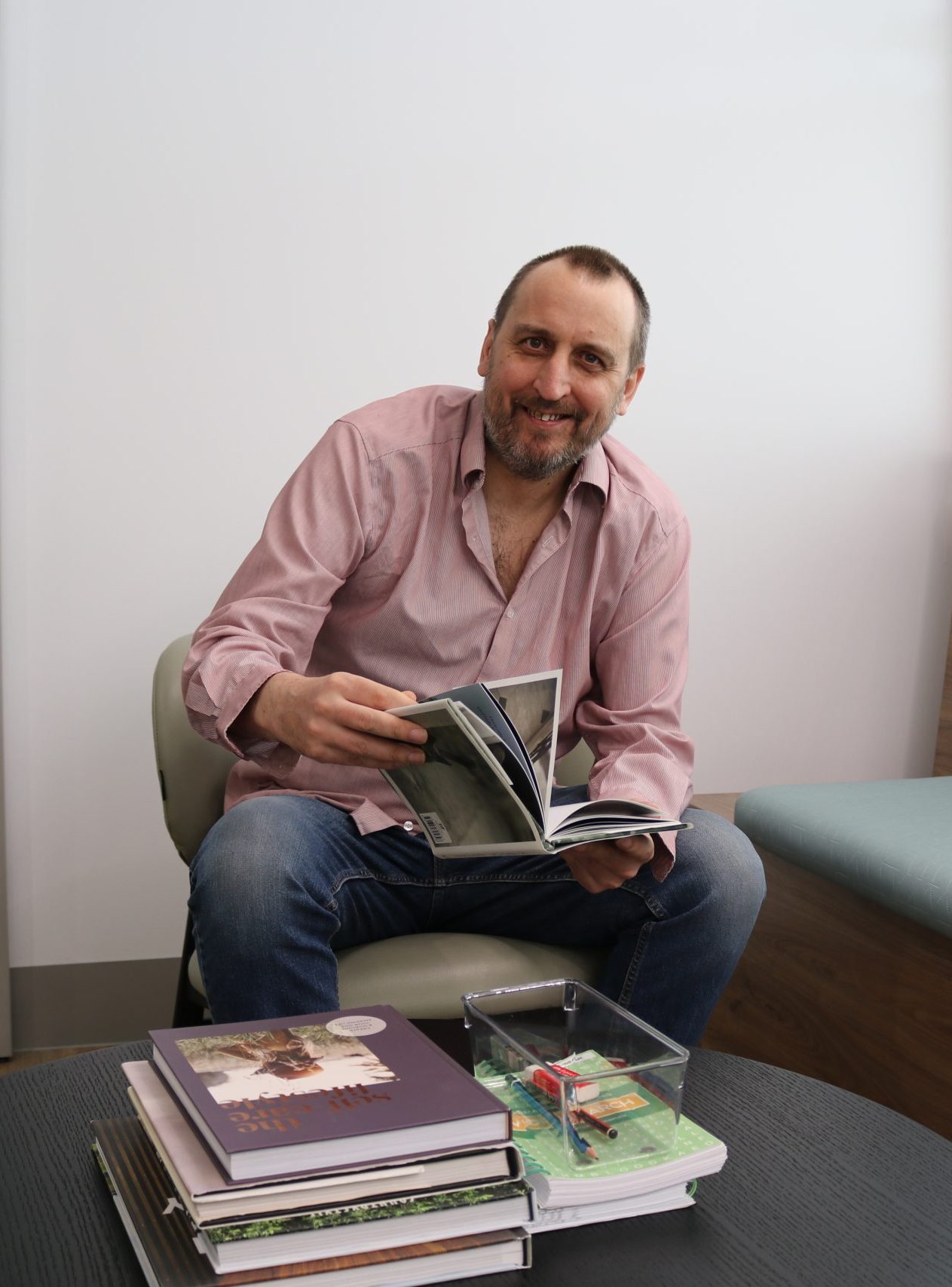Bringing advanced treatments to cancer patients
Facing a cancer diagnosis can be overwhelming, but there is hope. Clinical trials are at the forefront of cancer research, providing access to innovative treatments designed to enhance your quality of life and improve outcomes.
Your safety is our highest priority—every trial follows strict protocols, with dedicated medical teams closely monitoring participants throughout the process, all in Australia’s only licensed, private hospital solely dedicated to delivering advanced clinical trials.
By considering a clinical trial, you not only open doors to potential personal benefits but also contribute to the advancement of cancer care for all. We are here to support you on this journey, offering guidance and reassurance every step of the way.
230+
1000+
Discover the benefits of new trial treatments
Quality of life improvements
Access to precision healthcare
A sense of purpose and contribution
How do I apply for a cancer clinical trial?
We encourage you to talk with your treating doctor, who has your best interests at heart and understands the stage and progress of your cancer. Current cancer treatments, including targeted therapies and immunotherapies, can make early-phase trials a promising option. Together, you can explore whether a clinical trial aligns with your treatment journey and you doctor can refer to you Linear for consideration of a clinical trial.

Advanced Clinical Trial Centre

Access cutting-edge cancer treatments through clinical trials
Clinical trials offer you the opportunity to explore advanced therapies that are not yet part of standard care. These trials are essential in testing the safety and effectiveness of innovative treatments, providing hope and new possibilities for your cancer journey. Talk to your medical professional today to learn if a clinical trial might be right for you.

Frequently asked questions from patients
Feel confident that you’ll be well cared for when choosing to join a Linear clinical trial.
What is the purpose of a clinical trial?
Clinical trials aim to evaluate new treatments, drugs, or medical devices to determine their safety and effectiveness. They help researchers gather essential data to advance medical knowledge and improve patient care.
What are the different phases of clinical trials?
Clinical trials typically progress through several phases:
Phase I: Tests safety and dosage in a small group of healthy volunteers or patients.
Phase II: Evaluates effectiveness and further assesses safety in a larger group.
Phase III: Confirms effectiveness, monitors side effects, and compares the treatment with standard options.
Phase IV: Occurs after approval to monitor long-term safety and effectiveness in the general population
What are the advantages of being a participant in a cancer clinical trial?
Patients taking part in clinical trials often benefit from a greater degree of clinical oversight and monitoring of their disease by their healthcare team – so more frequent visits and more thorough assessments of their disease status. For some patients who are perhaps unable to access alternative treatment options, or where existing medicines have failed to provide benefit, clinical trials can enable earlier access to new, innovative medicines. Additionally, supporting clinical trials helps progress scientific understanding of medicine and improves healthcare options for future generations.
Why should I participate?
The health of millions of people has been improved because of advances in medical care, made possible by clinical trial participants. People choose to participate in clinical trials for a variety of reasons, including the chance to play a more active role in their own health care, gain access to new medical treatments before they are available to the wider public, and help others by contributing to the future of medical science.
How is my safety protected during the trial?
Participant safety is the top priority. Clinical trials are governed by strict ethical standards and regulations. Independent oversight bodies, such as Human Research Ethics Committees (HRECs), review and approve each trial to ensure risks are minimized and participants are protected throughout the study.
What happens if I don't want to participate in the trial anymore?
What are eligibility criteria?
All clinical trials have rules about who can and cannot participate. These rules are called “eligibility criteria” but may also be referred to as inclusion/exclusion criteria. The criteria are based on factors such as age, gender, the type and stage of a disease, previous treatment history, and other medical conditions. The eligibility criteria define the patient population that is being studied and are designed to protect the safety of participants in the trial. Because of the criteria, not everyone will qualify to participate in the trial.
How do I apply for a cancer clinical trial?
We encourage you to have a conversation with your treating doctor, who has your best interest at heart and understand the stage and progress of your cancer. Together you can determine if a clinical trial is a good option as part of your treatment journey. Your doctor can refer you to Linear Clinical Research for an opinion and consideration for a clinical trial.


